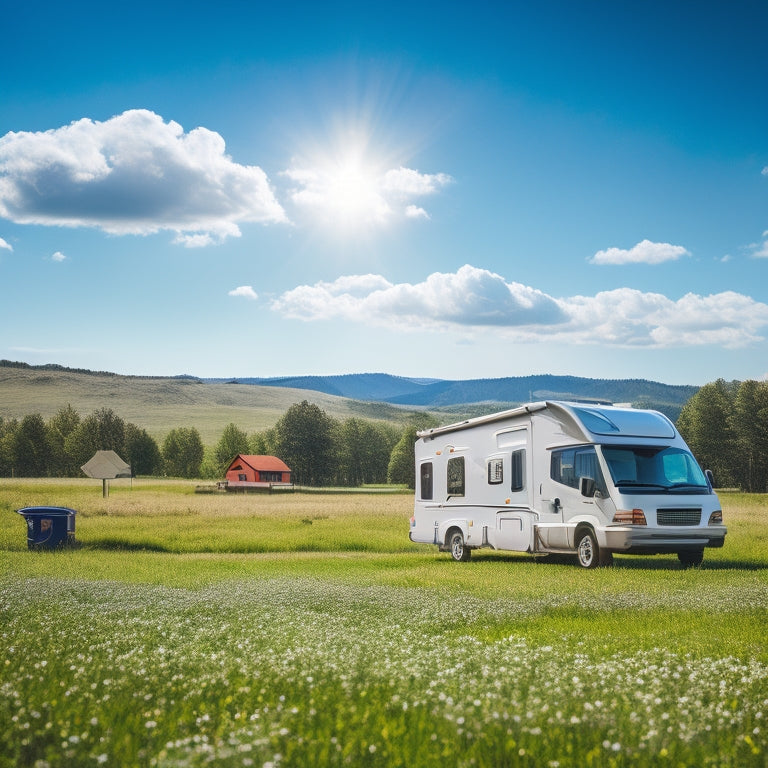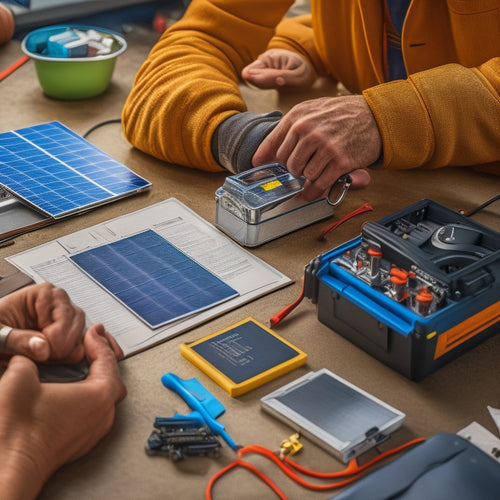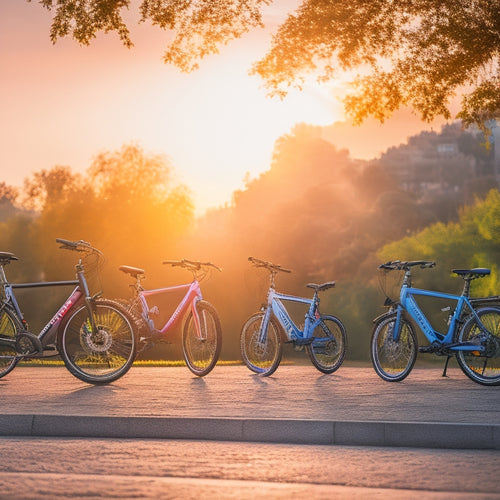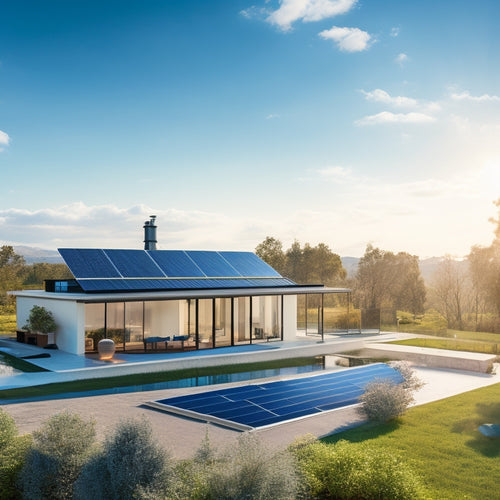
Top 3 Tips for Choosing Motorhome Solar Panels
Share
When choosing motorhome solar panels, you'll need to determine your daily energy consumption by calculating your total daily energy needs in watt-hours. Next, evaluate the quality of potential panels by looking at efficiency ratings, warranties, and manufacturer reputation. Finally, consider the physical constraints of your motorhome's roof, measuring available space and noting obstructions, to choose the right panel size and configuration. By following these tips, you'll be well on your way to selecting the perfect solar panels for your motorhome - and with a deeper dive, you'll be harnessing the sun's energy in no time.
Key Takeaways
• Assess your motorhome's energy needs through an energy audit to ensure the solar panel system meets energy requirements.
• Choose high-efficiency solar panels with a reputable manufacturer's warranty for maximum energy production and durability.
• Consider your motorhome's roof space and layout when selecting panel size and configuration to optimize energy production.
Assessing Your Energy Needs
Before investing in motorhome solar panels, you need to accurately evaluate your energy needs to make certain you're generating enough power to meet your daily demands. Conducting an energy audit will help you identify which appliances and devices consume the most power. This critical step guarantees you don't undersize or oversize your solar panel system.
During the audit, prioritize your power needs by categorizing them into essential, important, and luxury items. Essential items might include your fridge, lights, and phone chargers, while important items could include your laptop and water pump. Luxury items might be your TV and microwave. By ranking your power priorities, you'll understand how much energy you require to maintain your desired level of comfort.
Next, calculate your total daily energy consumption in watt-hours (Wh). This will give you a clear picture of your energy requirements, enabling you to select the right solar panel system for your motorhome.
Evaluating Solar Panel Quality
With your energy needs accurately assessed, you're now ready to explore the critical factors that determine the quality and performance of motorhome solar panels. Evaluating solar panel quality is essential to make sure you get the right system for your motorhome.
When researching solar panels, look for efficiency ratings, which indicate how well the panel converts sunlight into electricity. Higher efficiency ratings mean more power per hour of sunlight. For motorhomes, a high-efficiency panel is important to maximize energy production in limited space.
Another important aspect to take into account is warranty offerings. A reputable manufacturer should provide a thorough warranty that covers the panel's performance and durability. Look for warranties that guarantee a certain level of energy production over a specific period, typically 25 years or more.
A reliable warranty ensures you're protected against defects and performance degradation, giving you peace of mind and financial security. By taking these factors into consideration, you'll be able to choose a high-quality solar panel that meets your motorhome's energy needs and provides years of reliable service.
Considering Space and Size
You'll need to carefully consider the space constraints of your motorhome's roof or exterior when selecting solar panels, as the size and layout of the panels will greatly impact their energy-producing potential. Since space is limited, you'll want to maximize energy output while minimizing the footprint of your solar panel setup.
When evaluating solar panels, consider your motorhome's roof clearance and compartment layout. Measure the available space on your roof, taking note of any obstructions like vents, skylights, or antennas. This will help you determine the most efficient panel size and configuration for your setup.
For example, if you have a compact motorhome with limited roof space, you may opt for smaller, higher-efficiency panels that can fit snugly around roof obstructions.
Conversely, if you have a larger motorhome with ample roof space, you can install larger panels to capitalize on energy production.
Frequently Asked Questions
Can I Mix and Match Solar Panels From Different Manufacturers?
When mixing and matching solar panels from different manufacturers, you'll need to verify compatibility, watching out for voltage mismatches that can reduce performance or even cause system failures, so research carefully before making a choice.
How Do I Ensure My Solar Panels Are Securely Attached to the Roof?
When securing solar panels to your motorhome's roof, you'll want to understand your Roof Anatomy, considering factors like roofing material, curvature, and obstacles. You'll then choose suitable Mounting Options, such as adhesive, clamps, or tracks, to guarantee a sturdy, long-lasting installation.
Do Solar Panels Still Charge on Cloudy or Rainy Days?
On cloudy or rainy days, don't let the gloom get you down - your solar panels will still harness energy, albeit at a reduced rate, thanks to advanced power optimization techniques that maximize energy harvesting.
Can I Install Solar Panels Myself or Do I Need a Professional?
If you have some DIY experience, you can install solar panels yourself, but if you're new to electrical systems, consider seeking professional guidance to guarantee a safe and efficient installation that meets your motorhome's specific needs.
Will Solar Panels Void My Motorhome's Warranty?
Before installing solar panels, you'll want to conduct a warranty check to make sure it won't void your motorhome's warranty; obtain manufacturer approval to confirm compliance, and maintain your warranty's validity.
Related Posts
-

7 Essential Tips for DIY Solar Car Battery Install
To guarantee a successful DIY solar car battery installation, you'll need to choose the right components and follow p...
-

Sustainable Commuting: Top Daily Use Electric Bicycles
You're looking to trade in your gas-guzzling vehicle for a more sustainable option, and a daily use electric bicycle ...
-

Why Opt for High-Efficiency Solar Panels Online?
You can greatly enhance your solar energy output and savings by upgrading to high-efficiency solar panels, which can ...


